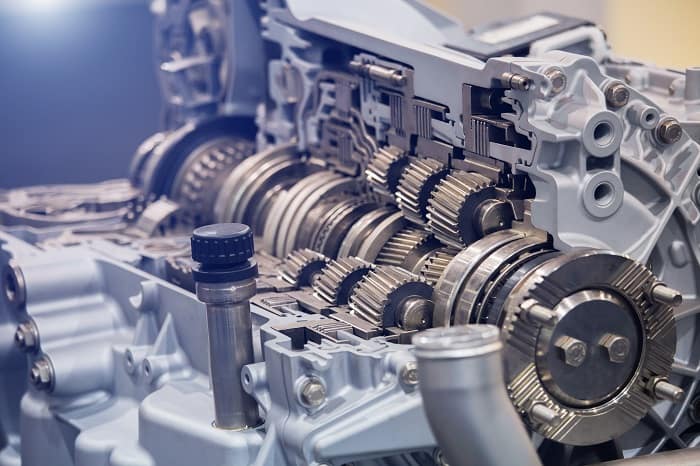
Learn More About Car Transmissions
Without a transmission, your vehicle isn’t going to go anywhere. So, if there is a problem with the transmission, you’ll need to have it inspected by a transmission repair specialist. How do you know if your transmission is having problems?
Signs of Issues With Vehicles
If you’re noticing any of the following issues with your vehicle, schedule that appointment with your mechanic:
1. It Won’t Switch Gears
This can be caused by low transmission fluid, or maybe the wrong transmission fluid was put in. Either way, you should have it checked for the possibility of transmission repair or replacement.
2. A Burning Smell
If you notice a burning smell coming from your car, or any part of the car, get your car to a transmission repair shop immediately! That smell is often an indication that either the transmission fluid is old or the transmission is overheating.
3. Weird Sounds in Neutral
Weird sounds coming from a vehicle are never a good thing, especially when it is coming from the transmission while it is neutral. It is possible that simply changing the transmission fluid will fix the problem, but it may need more complex transmission repairs.
4. Gears Slippage
When you take off from a stop sign and traffic is approaching you, it can be scary and alarming if the transmission starts to slip. Or if they slip impulsively while you’re going down the road, that is scary and both scenarios are dangerous. When this happens, take your vehicle to a mechanic for inspection of transmission repair or possible replacement.
5. Clutch Drags
When the clutch drags or won’t disengage, this can keep the vehicle from going forward and should be inspected by a mechanic. The transmission may be low on fluid, but in most cases, a dragging clutch leads to more detailed transmission repair.
6. Fluid Leaks
Fluid leaking from a transmission tells you right away you’re your vehicle probably needs transmission repair. If you don’t see red fluid under the vehicle, you’ll smell a sweet-smelling odor coming from the vehicle.
7. Illuminated Check Engine Light
If the check engine light is illuminated on the dashboard, this can indicate several different things are wrong with your vehicle. If this happens in a combination of the other things we’ve listed, you need your mechanic to inspect the transmission for possible transmission repairs.
8. Transmission Grinds or Shakes
A problem more common with automatic transmissions that need transmission repairs is one that grinds and shakes as the gears shift into place. If your vehicle is doing this, schedule an appointment with your mechanic for possible transmission repairs.
Can transmissions be repaired or rebuilt?
When we say ‘transmission repairs’, the process that takes place in many cases, your mechanic will install a rebuilt transmission. There are some transmission repairs a mechanic can do, but actually performing complete transmission repairs is a very complex and detailed task.

What is inside a transmission?
Okay, so your mechanic tells you that a transmission repair for your vehicle is impossible, so they recommend installing a rebuilt transmission instead. Why is repairing it impossible? Because of the many components and parts, among them are:
- Torque converter
- Hydraulic pump
- Planetary gears
- Clutches
- Brakes
How does an automatic transmission know when to shift?
Here, we provide a very brief description of how an automatic transmission works. There is a lot more that goes on in addition to this description, but there isn’t enough space in this area to share those details.
The transmission control module (TCM) uses the powertrain to get sensor data that tells the transmission to shift gear as the transmission accelerates. The TCM disengages from the first gear and engages into the second gear seamlessly by engaging and disengaging using various brakes and clutches.
When a transmission isn’t making these movements of disengaging and engaging as described here, that is when you need to take your vehicle in for transmission repairs.
Why is transmission fluid so important?
Just like the motor oil in the engine, the transmission fluid lubricates all the mechanical parts, keeps the transmission cool, and keeps it from oxidizing. The transmission fluid also conditions the gasket and keeps rust from forming. When a vehicle is low on or out of transmission fluid, it can keep all these things from happening, resulting in needing transmission repairs.
What are the different types of transmission fluid?
There is more than one type of transmission and they require different types of transmission fluid. The wrong fluid in the transmission will have you taking your vehicle in for transmission repairs. The 2 types of transmission fluids are:
- Automatic transmission fluid
- Manual transmission fluid
Some cars have a CVT type of transmission or a dual-clutch model. These types of transmission require specialty or synthetic transmission fluid. Just like other types of transmission, having the proper type of fluid is a must at the appropriate level.
J1 Auto Repair is here to help you with your transmission repair in Lombard and Wheaton, IL. Contact us at 630-932-4427 to get started.
